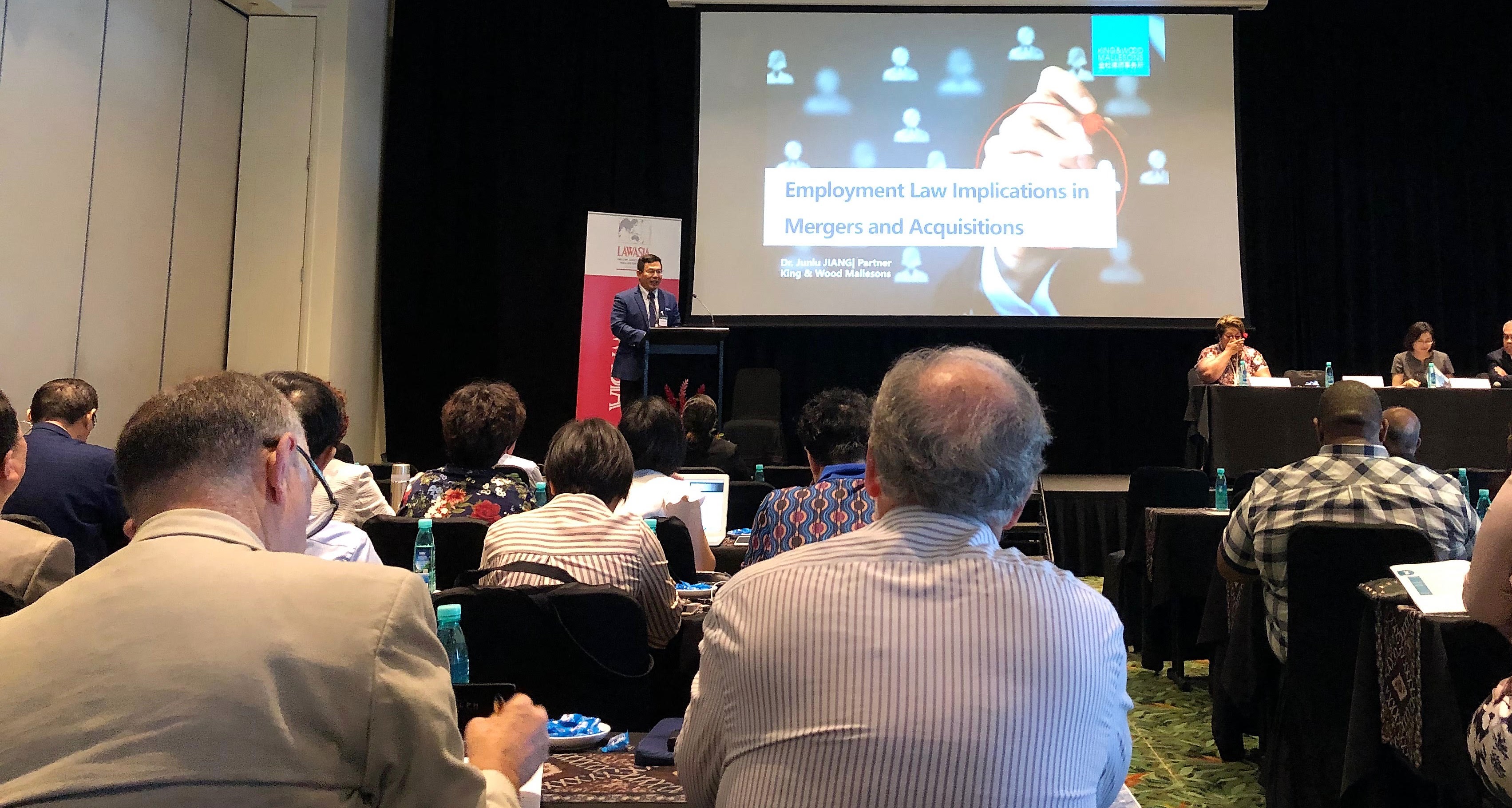Taking disciplinary action against an employee is perhaps the most challenging task for an employer. This is because in most cases of employee wrongdoing the employer must assume the technical roles of investigator, prosecutor and judge while owing an overriding duty to treat the employee fairly. The body of employment law in Fiji shows that employers can pay a high price for getting any of these stages wrong.
In this commercial law update, we consider the first stage of the disciplinary process - being the investigation to establish the facts of the matter. While in Fiji this stage is usually conducted by the employer, in other jurisdictions, like Australia, NZ, and Malaysia, an employer may seek a qualified third party to undertake an investigation.
In January 2019, the Fiji Law Society organised and hosted the LawAsia Employment Law Forum during which a senior employment lawyer, Mr Brian C Willamson distilled his many years of expert knowledge into a presentation about how to conduct disciplinary investigations to be “effective and fair”. While, it is likely that most employers due to limited resources and qualified investigators will still have to undertake their own investigations, Mr. Williamson’s detailed and expert knowledge provides valuable insights into this process.

Delegates at the LawAsia Employment Law forum, 25-26 January 2019
In our previous employment law updates we have set out what happens when an employer gets a summary dismissal wrong and provided an update on the circumstances that may lead to a summary dismissal.
On 25-26 January 2019, and thanks to the admirable organisational efforts of the Fiji Law Society, Fiji hosted a LawAsia conference for the first time.
While all the talks were stimulating and provided useful insights for practitioners, Mr. Williamson’s was possibly the most practical for Fiji’s employers as it focused on the investigation process with the express aim of making this stage of the disciplinary process “effective and fair”. The comments Mr. Williamson made, applicable to employment conditions in Fiji can be summarised as follows:
- The need for ensuring that investigations are fair has grown in the past 20 years due to more litigation in this area.
- A good investigatory stage and report is particularly important in cases of serious misconduct of employees which may lead to a summary dismissal for employee misconduct.
- When there is a serious allegation - the disciplinary process must be commenced expeditiously (without undue delay) and fairly with the employee informed of what is happening - this may involve suspending the employee on full pay during the investigation stage or re-deploying them to another work location.
- Employers should consider keeping the accused employee and the complainant(s) apart during this investigation stage - this is a good reason why the accused employee may need to be suspended during this process.
- While an external investigator is recommended, at a minimum employers should ensure that the person who made the complaint against the employee is not the investigator. [It is recognised that this may pose a challenge for some smaller employers in Fiji.]
- Appointing an external investigator (where possible) increases the perception of independence, and reduces the perception of bias or unfairness during the investigation stage.
- Employers frequently instruct their lawyer to work with the investigator to improve the investigation process, set terms of reference and deal with any enquiries that the investigator may have as the lawyer can provide confidential and privileged advice to the investigator.
- There is a duty to frame any allegations against the accused accurately and in an open manner, and the investigator and lawyer may assist with this.
- The investigator should determine the standard of proof required in relation to the particular allegations that have been made and the seriousness of the likely consequences for the employee, bearing in mind that the civil standard of proof is “on the balance of probabilities” and the criminal standard is “beyond reasonable doubt”.
- It is generally prudent for the investigator to follow the following process:
- First, interview the complainant to ensure there are no further issues that need to be put to the accused;
- Secondly, interview the accused employee; and
- Thirdly, determine whether interviews of witnesses are required and if they are, conduct those interviews.
- During the investigatory process if new issues come to light then the accused employee should be advised of these issues in an open manner and should be provided with another opportunity to be interviewed by the investigator on these new issues.
- Wherever possible all interviews should be face to face, subject to confidentiality and witnesses should sign confidentiality agreements.
- The investigator should maintain his or her independence, and be experienced and professional in their demeanour and questions. This includes asking open questions and being able to assess the credibility of witnesses in a fair manner.
- If interviews are recorded the investigator should disclose this and seek permission from the person being interviewed.
- The investigator should produce a record of the interview and provide this to the witness to confirm it is accurate and sign it if it is accurate.
- During any interview with the accused he or she should have the opportunity to have a support person present.
- The investigatory process should be conducted as efficiently as possible and this includes the production of the final report.
- The investigation report should be professionally presented and reference any supporting documentation.
- If the investigation report makes adverse findings against the accused employee they should be informed and provided with a final opportunity to provide a response within a reasonable time (note more than 24 hours).
Mr. Williamson’s essential point was that an effective disciplinary process was not one that resulted in the termination of an employee, but one that objectively, fairly and professionally considered the accusation, and the facts and came to a reasonable conclusion. This approach could equally exonerate an employee as find the accusation proven.
Conclusion
Mr. Williamson’s final conclusion was to remind practitioners that getting a disciplinary process right was like baking a cake. If an ingredient is missed, then the final product will not be optimal.
As mentioned at the outset, not every employer will have the resources to hire an external investigator in every case of employee wrongdoing, however, the lessons provided by Mr. Williamson are a useful and timely reminder of the importance of fair, and objective disciplinary investigations.
With thanks to: Brian Williamson for reviewing a draft of this commercial law update and for his expert and valuable insights:

Brian Williamson has been a solicitor and advocate in Australia since 1981 and an Accredited Specialist in Industrial Relations and Employment Law since 1994. Within these contexts he has had 25 years’ in leadership roles in three high profile law firms, 20 years’ as a workplace investigator, 10 years’ as a company director of a major NPF business with $80m/pa turnover, 6 years’ conducting Code of Conduct reviews for a large NSW Local Council and 5 years lecturing at university level. He has a deep and continuing interest in LawAsia.
For more information on LawAsia please see here
This commercial law update is provided for general information purposes only and is not, and should not be relied upon, as legal advice.



